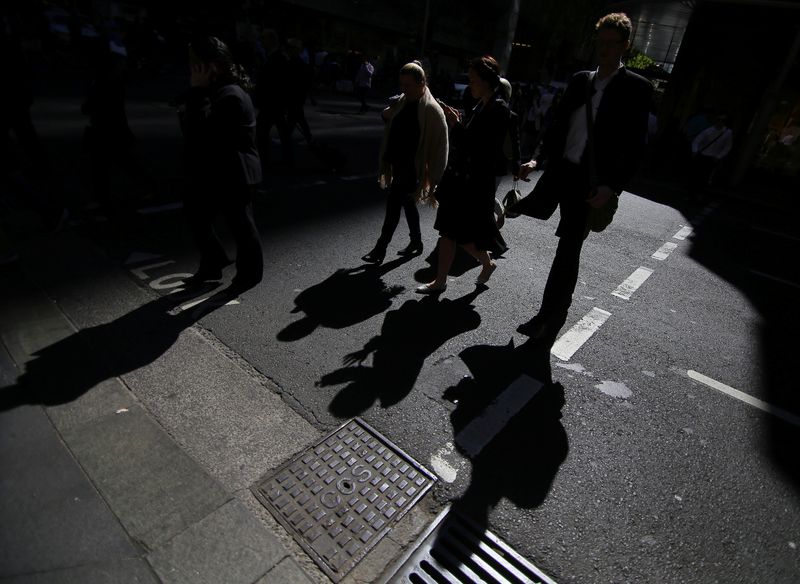[ad_1]

© Reuters. FILE PHOTO: Office workers cross a street in Sydney, Australia, September 4, 2017. Picture taken September 4, 2017. REUTERS/Steven Saphore
By Wayne Cole
SYDNEY (Reuters) -Australia’s economy grew at its weakest pace in a year last quarter as strength in trade was offset by rising interest rates and high inflation, and all the signs are a further slowdown lies ahead.
Indeed, without the sizeable contribution from trade the economy would actually have contracted in the December quarter as rising prices eroded consumer purchasing power and led them to save less.Data from the Australian Bureau of Statistics (ABS) on Wednesday showed real gross domestic product (GDP) rose 0.5% in the December quarter, compared to 0.7% in the previous quarter and under forecasts of 0.8%.
Annual growth was still solid at 2.7%, but the report contained plenty of evidence of cost and price pressures that underline the case for yet further increases in interest rates in the struggle against inflation.
Domestic prices rose at the strongest annual pace since early 1990, with services inflation stoked by a shortage of skilled workers and rising labour costs.
Separate data from the ABS out on Wednesday showed its monthly indicator of consumer prices rose a smaller-than-expected 7.4% in the year to January, but that was still the second-highest reading on record.
Such pressures have led the Reserve Bank of Australia (RBA) to raise its cash rate by 325 basis points since last May, taking it to a decade-high of 3.35% and flagging more to come.
Markets are wagering rates will keep climbing to peak around 4.35% in the middle of the year.
Yet there are also signs high borrowing costs are working to restrain demand. Household consumption rose only a meagre 0.3% in the December quarter, while economic output excluding international trade actually fell 0.5%.
“After four quarters of strong growth following the Delta-variant lockdowns, growth in household spending softened in the December quarter,” said Katherine Keenan, ABS head of National Accounts.
[ad_2]
Source link
(This article is generated through the syndicated feed sources, Financetin doesn’t own any part of this article)
